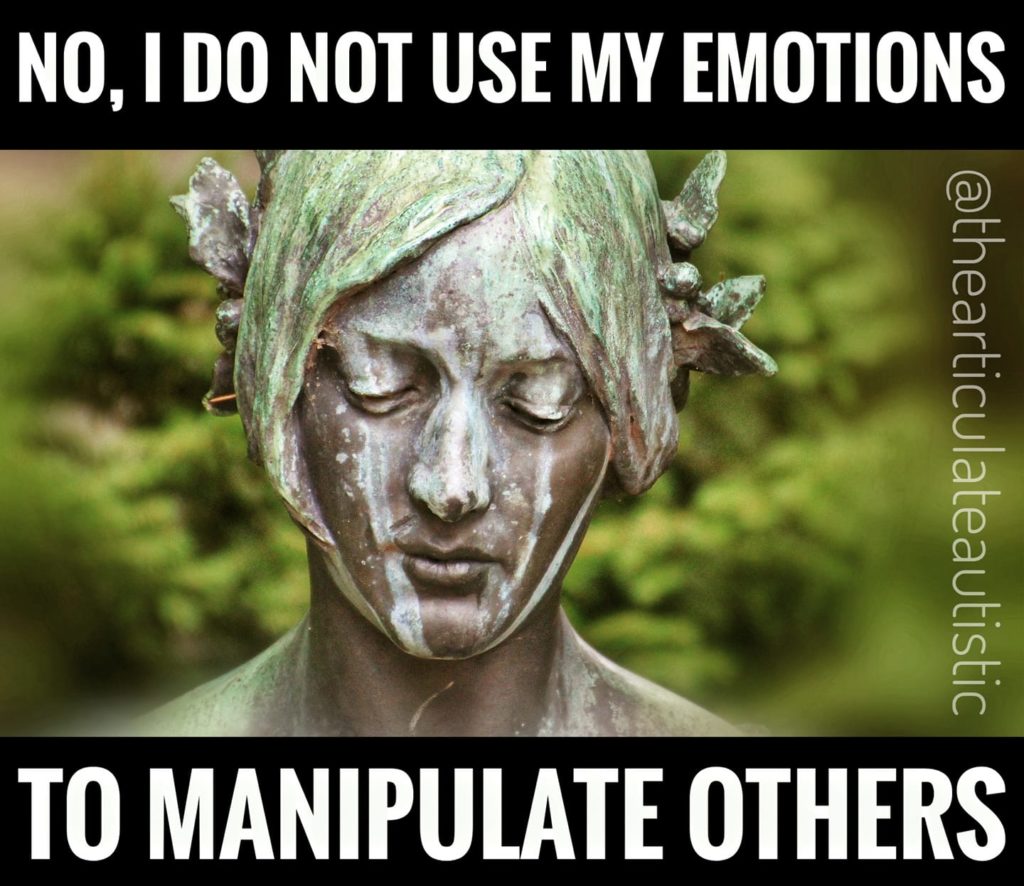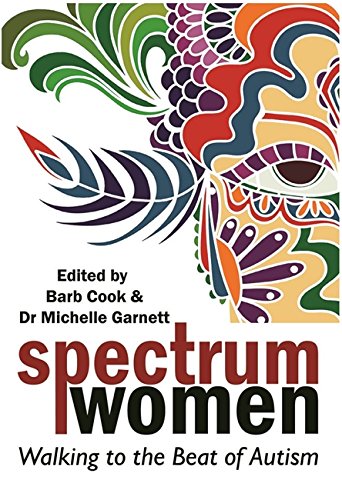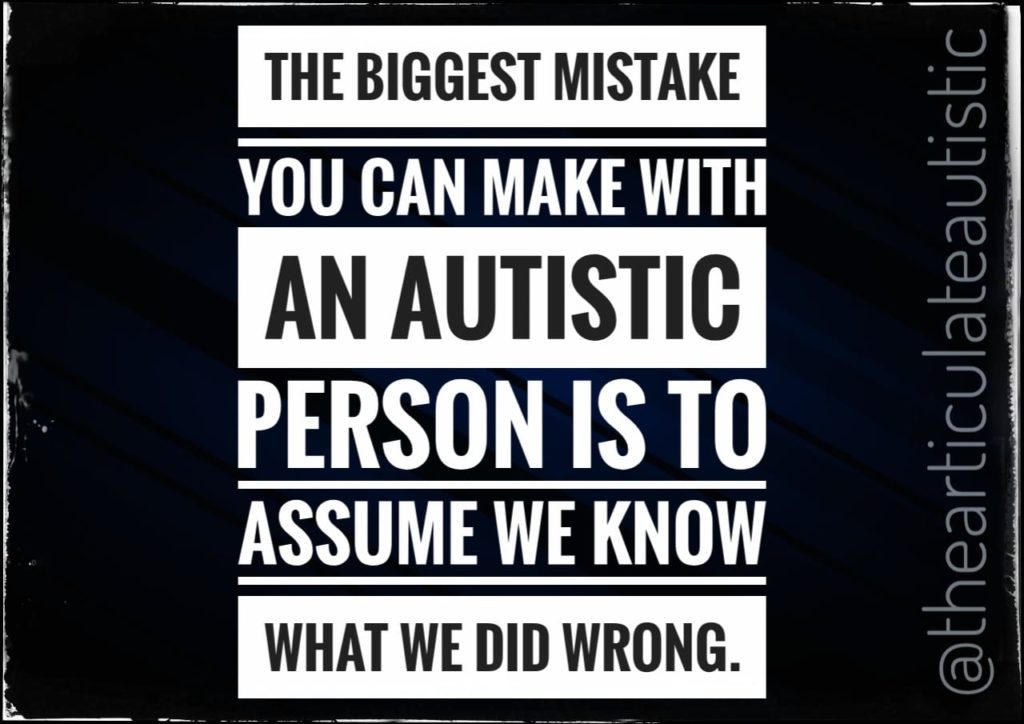No, I Do Not Use My Emotions to Manipulate Others

“Crocodile tears.” You want to tick me off? Say those two invalidating words.
I never understood this as a child. My grandmother would say it, and if you’re not familiar with the old-fashioned phrase, the term “crocodile tears” means showing fake emotion, as in, pretending to be crying for personal gain.
Yes, some neurotypical people actually do this. It shocked me to my core when it finally clicked for me that this is quite common.
Autistic people show emotion in a very genuine way. Meaning, if we are crying, screaming, rocking, tearing our hair, etc….we are in PAIN.
We are in deep emotional distress. None of this is faked or exaggerated.
(Article continues below.)
The best way to improve communication with your autistic loved one is to understand how your autistic loved one’s mind works! Intentions, motivations, and personal expressions (facial expressions or lack thereof, body language, etc.), are often quite different in autistic people than they are in neurotypical people.
Experience a better understanding of your autistic loved one by reading books about life from an autistic perspective as well as stories that feature autistic characters. You’ll have so many “Ah ha!” moments and start seeing your autistic loved one in a different light (and you’ll have a better understanding of their behaviors, which you may have been misinterpreting up until now).
Books I recommend for a better understanding of your autistic loved one:
Whereas, one of the social communication strategies in the neurotypical (NT) world (and this is accepted and understood by NTs) is pouting or shedding a few tears or making a fuss when they are not actually in distress but trying to get the other person to acquiesce to their wishes.
That isn’t to say NT people pretend to have meltdown-level emotional responses to get what they want, but a show of some “emotion” might not come from a place of distress but rather desire.
(Think of someone wearing a revealing outfit specifically to get a discount on an item or get a favor from someone attracted to them.)
So, when an autistic person is in genuine emotional distress, neurotypical people will sometimes misinterpret this as an attempt at manipulation on the part of the autistic person, instead of trying to alleviate their distress.
– Jaime A. Heidel
This only makes things 10 times worse because when we are in a shutdown or meltdown state, the LAST thing we are really capable of doing is defending ourselves and explaining anything, but we are often forced into a position where we have no choice, or we risk further emotional injury from those who are yelling and screaming at us in reaction to something we’ve unknowingly said or done to upset them!
The takeaway? Autistic people (as a rule) do not use emotion as a social tool. If we are showing it, it is genuine and literal (and, yes, it’s THAT bad), and we need you to fully understand and respect this.
If, after reading this, you tell an autistic person they’re using “crocodile tears” to get what they want, then they have every right to say (when they can speak again), “See you later, alligator” and just keep on walking.
Learn more about why autistic people will often hurt your feelings with no intention of doing so by clicking on the photo below.
Follow me on Instagram.
Want downloadable, PDF-format copies of these blog posts to print and use with your loved ones or small class? Click here to become a Patreon supporter!








5 Responses
[…] Most autistic people do not use their emotional responses to manipulate others. Our emotional responses are genuine and 100% in line with the amount of pain, confusion, and sensory overload we feel. Click on the photo below to read more about what’s happening when your autistic loved one gets very emotional. […]
[…] “You’re just pretending to be bad at this” is not a sentence autistic people can easily make sense out of. No, we don’t. That’s just our neurology. We don’t pretend to be confused any more than we use emotions to manipulate others. […]
[…] something in a blunt way would be considered rude or sighing would be mistaken as irritation, or crying would be seen as possible emotional blackmail, or that covering our ears would mean we are mocking your taste in music, or pushing food aside […]
[…] There is no manipulation here. We take what is said to us at 100% face value, and what I’m about to say next is why it is SO CRUCIAL to explain why to an autistic person when teaching them a new social skill. […]
[…] Also, many of us respond with brokenhearted tears when we realize we’ve hurt someone. This is not, I repeat, NOT, an attempt to control the situation or turn the attention back on ourselves. […]